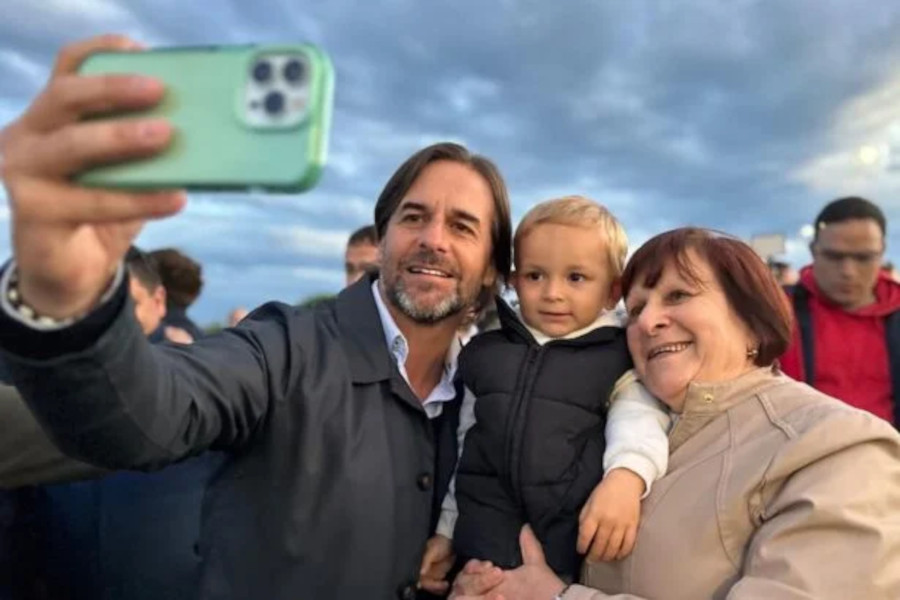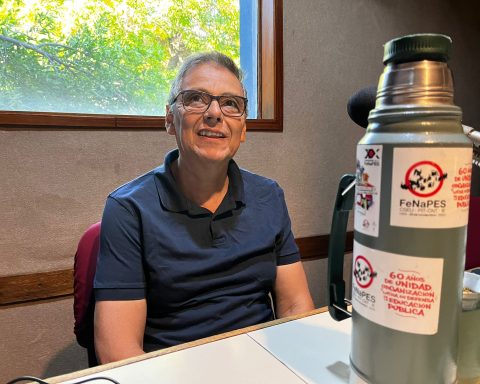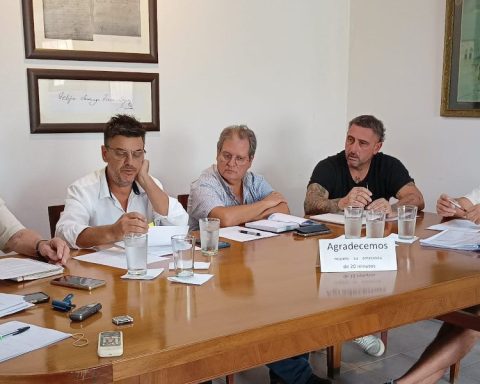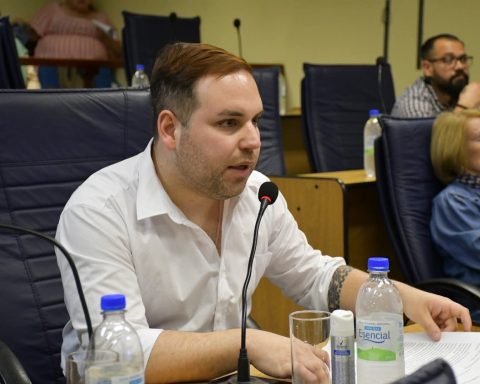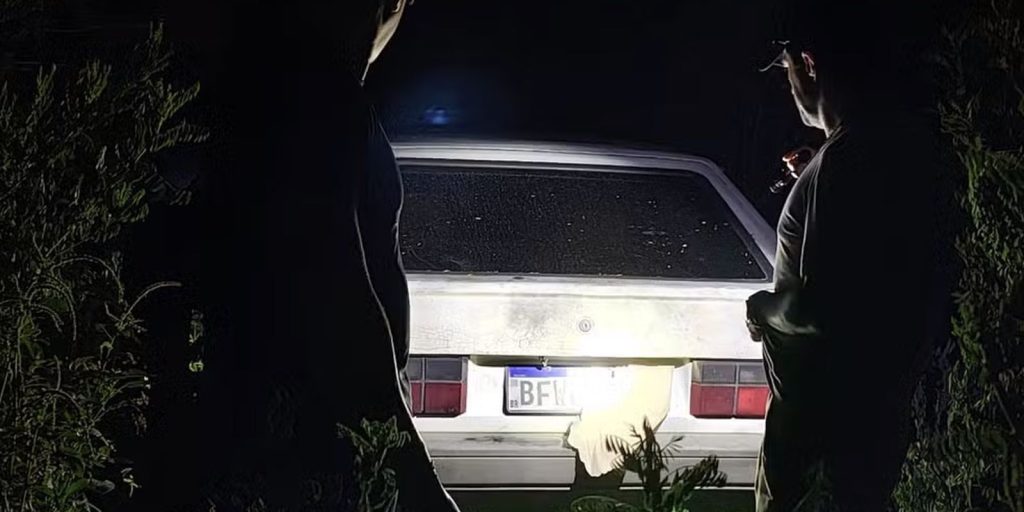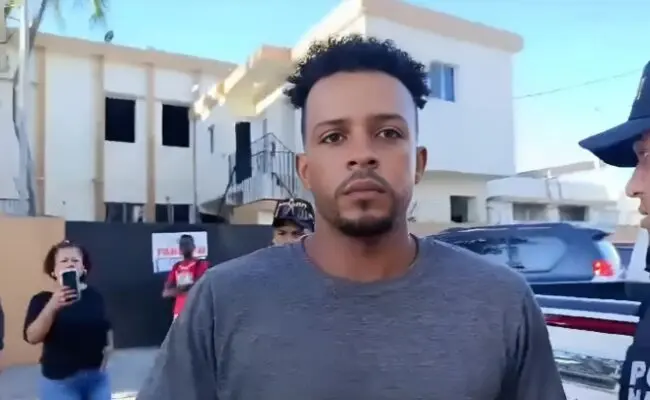By Daniel Roselli. A month and a half after leaving his inauguration as President of the Republic, Luis Lacalle will join a liberal economic and political studies center. On the other hand, while he makes his last appearances as president, he gives the impression that he is on an electoral campaign.
Despite the defeat of his party, which will hand over the presidential sash to a representative of the rival all the time since he has been in the political arena, the President of the Republic, Luis Lacalle, seems to be more in the middle of a campaign electoral as a candidate, than as an outgoing president, who is going to be replaced.
It would seem that instead of being in a transition, he is telling future rulers that he will be watching them, that he will have their eyes on their management and the results they will obtain.
Results that in his own management were not close. From the “responsible freedom” of the Covid 1 pandemic, to all the cases of corruption that involved his government, Luis Lacalle never had anything to do with it, he was never responsible, “you know me” he even told Montevideo journalists in a impromptu press conference.
That may be why ministers, directors, and officials fell in his government, but the president never had anything to do with it. “Its transparency” was never questioned despite the fact that countless acts of corruption and crimes were recorded in its own Executive Tower. He always came away very advised by the image quality and where to move.
Its popularity numbers are no coincidence. For some it may be the product of good management, for others it is pure social media strategy and an advertising image.
What will you join?
It was confirmed that the president is going to resign from his seat in the Senate and will work at the Center for Development Studies (CED). Luis Lacalle headed all the National Party lists in the elections on October 27.
For her part, according to journalist Romina Andrioli, once her mandate ends on March 1, 2025, the president will join the Center for Development Studies (CED), Think Tanks, currently chaired by economist Hernán Bonilla. .
Bonilla confirmed that the idea is that the president, once he leaves office, contributes from that study center to the public debate.
A Think Tanks forum
In short, Think Tanks are spaces that serve to analyze society’s challenges, generate debate and propose solutions. Under this name we can group a number of organizations that carry out research on certain topics to develop proposals for action.
Although the terminology is not widespread in Spanish-speaking countries, a Think Tank or ‘thought tank’ is an institution that is dedicated to the production of ideas, research and that produces evidence on certain topics or fields.
What is its origin?
The expression Think tanks has its origins in the Second World War, it consisted of a secret and secure room against espionage and leaks where plans and strategies were discussed. Therefore, Think Tanks or idea laboratories are born in the field of defense and national security.
Currently, there are Think Tanks dedicated to national defense, but since their creation other classes have emerged, such as those dedicated to research, political issues, they may be partisan or non-partisan, others are private, academic or from civil society.
The objective of a Think Tank is to produce and transmit information and knowledge in order to influence the public policy process, generate ideas, create and sustain open spaces for debate and deliberation.
A Think Tank that seems very close to President Lacalle is the Argentine, who makes an apology in support of President Javier Milei, called “Libertad y Progreso” and can be found at https://www.libertadyprogreso.org/
The popularity of the presidentand
A month and a half after completing his term, the President of the Republic, Luis Lacalle Pou, continues to maintain high approval levels, according to the latest survey released this Monday by Equipos Consultores.
It is detailed there that in December the president ended the year 2024 with the best approval records since May 2021.
Along these lines, Equipos indicated that in the last two months of last year the president’s approval grew, while his disapproval fell.
“In December, once it was known that Yamandú Orsi would be the next president of the Uruguayans, Lacalle Pou received positive evaluations. 58% of the population approves of the way he is performing, 25% disapproves and the rest have intermediate judgments or have no opinion. On balance, the net balance (approval minus disapproval) is +33”.
In this order, Equipos points out that Lacalle ends his last year of his presidential term with approval levels similar to those of Tabaré Vázquez (during his first government) and those of José Mujica.
With respect to political parties, among coalition voters the president maintains “extraordinarily high levels,” but in the case of those who voted for Orsi, the balance is the opposite.
90% of those who voted for Álvaro Delgado in the November second round approve of the president’s performance, while among those who opted for the Frente Amplio, only 31%. 50% of Orsi voters disapprove of the president’s management.
